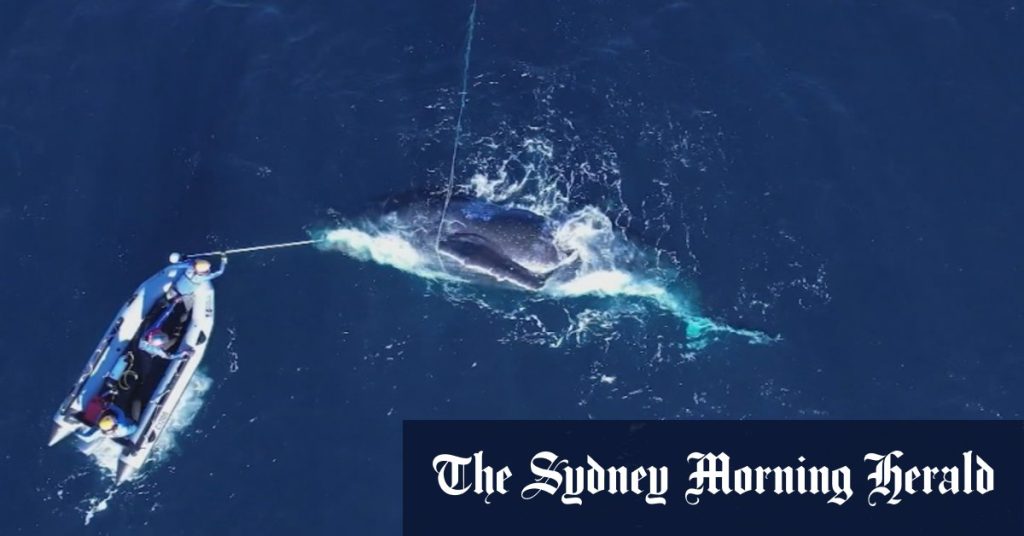A rescue mission was initiated near Rottnest Island when a 12-meter humpback whale was found tangled in fishing line. The whale was spotted struggling as it tried to free itself from the entanglement. A team of experts, including some from the Department of Parks and Wildlife, worked together to approach the distressed whale and carefully remove the fishing line from its body. The rescuers were able to successfully free the whale, allowing it to swim away unharmed. The rescue mission was a success, with the whale being saved from potential harm and suffering.
The rescue operation off Rottnest Island highlights the dangers that marine life faces due to human activities such as fishing. Fishing lines and nets can pose serious threats to whales and other marine animals, leading to entanglement and potentially life-threatening injuries. It is essential for individuals and organizations involved in fishing and other aquatic activities to ensure they are taking appropriate measures to prevent harm to marine life. This rescue serves as a reminder of the importance of conservation efforts to protect our oceans and the creatures that inhabit them.
The humpback whale that was rescued near Rottnest Island serves as a symbol of the resilience and vulnerability of marine animals. Despite facing challenges such as entanglement in fishing gear, these majestic creatures continue to navigate the oceans in search of food and breeding grounds. The successful rescue of the whale demonstrates the importance of timely intervention and collaboration among experts to ensure the well-being of marine life. It also highlights the need for increased awareness and education regarding the impact of human activities on marine ecosystems.
The rescue mission off Rottnest Island also emphasizes the need for continued monitoring and response efforts to mitigate the impact of marine debris on whales and other marine animals. As human activities continue to put pressure on marine ecosystems, it is crucial for authorities and conservation organizations to work together to address the root causes of threats to marine life. This includes implementing measures to reduce the use of harmful fishing gear and promote sustainable fishing practices to protect marine habitats and species. The successful rescue of the humpback whale serves as a beacon of hope for the conservation of marine life in the face of growing environmental challenges.
The rescue of the humpback whale near Rottnest Island provides a powerful example of the positive impact that human intervention can have on the well-being of marine animals. The collaborative efforts of the rescue team, along with the support of government agencies and conservation groups, played a crucial role in saving the whale from harm. The successful outcome of this rescue mission underscores the importance of collective action in protecting marine life and preserving the health of our oceans. It also serves as a reminder of the responsibility that we all share in safeguarding the natural environment for future generations.
In conclusion, the rescue of the humpback whale near Rottnest Island serves as a poignant reminder of the potential threats that marine life faces from human activities such as fishing. The successful intervention by a team of experts highlights the importance of timely and coordinated efforts to protect marine animals from harm. This rescue mission underscores the need for increased awareness and action to address the root causes of threats to marine ecosystems and promote conservation measures to ensure the long-term health of our oceans. The rescue of the humpback whale stands as a testament to the resilience and vulnerability of marine life, and the importance of collective action in safeguarding the natural world.


